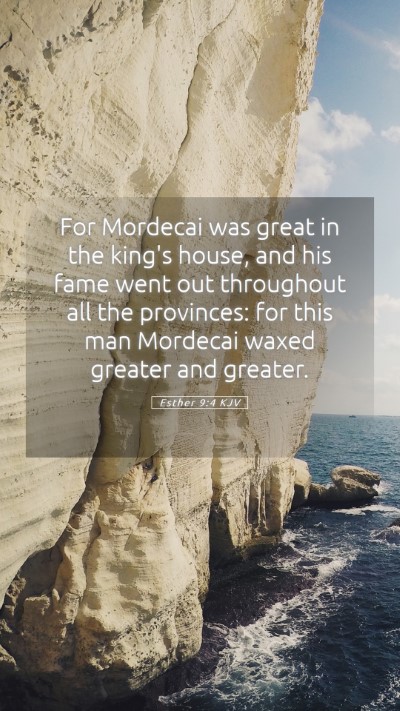Old Testament
Genesis Exodus Leviticus Numbers Deuteronomy Joshua Judges Ruth 1 Samuel 2 Samuel 1 Kings 2 Kings 1 Chronicles 2 Chronicles Ezra Nehemiah Esther Job Psalms Proverbs Ecclesiastes Song of Solomon Isaiah Jeremiah Lamentations Ezekiel Daniel Hosea Joel Amos Obadiah Jonah Micah Nahum Habakkuk Zephaniah Haggai Zechariah MalachiVerse
Esther 9:1 Esther 9:2 Esther 9:3 Esther 9:4 Esther 9:5 Esther 9:6 Esther 9:7 Esther 9:8 Esther 9:9 Esther 9:10 Esther 9:11 Esther 9:12 Esther 9:13 Esther 9:14 Esther 9:15 Esther 9:16 Esther 9:17 Esther 9:18 Esther 9:19 Esther 9:20 Esther 9:21 Esther 9:22 Esther 9:23 Esther 9:24 Esther 9:25 Esther 9:26 Esther 9:27 Esther 9:28 Esther 9:29 Esther 9:30 Esther 9:31 Esther 9:32

